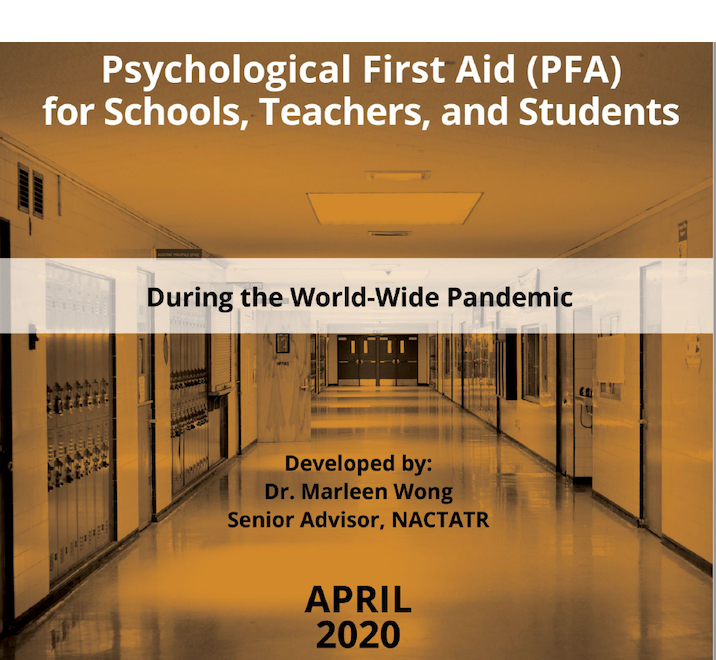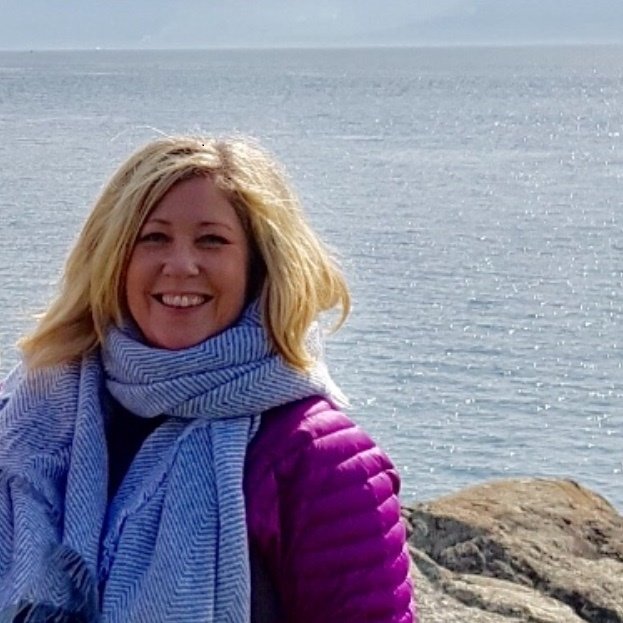|
|
 |
Welcome back from Spring Break - we hope it was a restorative break for all! Over the next three months, we will continue our supports for ongoing initiatives, and begin planning for next year. At this time, we are planning to have our theme focused on suicide interventions and non suicidal self injurious behaviours, as this has been an overwhelming theme from all levels of counselling. Stay tuned as we share these plans over the next few months!
|
|
|
|
|
|
|
|
|
|
 | Updated Community Resources:
|
| |
|
|
|
|
IBI Updated Information
NEW THIS YEAR:
Two separate Request to Designate forms:
- one for New IBI
- one for IBI Re-submission
Files to be submitted via email to Emily Fernyhough at efernyhough@sd61.bc.ca.
Submission must include designation request and require documentation.
| IBI Designation Process Flow Chart
|
| |
|
|
|
|
Please submit new IBI requests, with documentation, for the 2021/22 school year via email to Emily Fernyhough at efernyhough@sd61.bc.ca by 3pm on June 3, 2021. The documents can also be found on our Learning Support website under Designations. If you have any questions, please connect with Dana Marchant (dmarchant@sd61.bc.ca) or Debra Caso-Rohland (dcaso@sd61.bc.ca). |
Please submit new IBI requests, with documentation, for the 2021/22 school year via email to Emily Fernyhough at efernyhough@sd61.bc.ca by 3pm on June 3, 2021. The documents can also be found on our Learning Support website under Designations. If you have any questions, please connect with Dana Marchant (dmarchant@sd61.bc.ca) or Debra Caso-Rohland (dcaso@sd61.bc.ca).
|
| |
|
|
|
|
To facilitate physical distancing, consultation and collaboration will continue to take place via the phone. The Victoria and Saanich CYMH team leaders are available April 19 and 21. The Aboriginal CYMH team leader is available in the morning on April 19, and the afternoon on April 21. Please see the attachments for further details. Requests for consultation and collaboration phone calls, including
the collaborative planning template, need to be submitted by noon on April 8 through the link embedded into document titled Consultation and Collaboration Days. If you have any questions, please reach out to Dana Marchant at dmarchant@sd61.bc.ca. Please click here to register for a consultation/collaboration meeting.
|
| |
|
|
|
|
|
|
This website offers a variety of self-compassion practices including guided meditations and exercises. "With self-compassion, we give ourselves the same kindness and care we'd give to a good friend."
|
| |
|
|
|
|
|
|
|
|
|
|

| Settlement Workers in Schools (SWIS) is a school based outreach program aimed at helping newcomer students and their families settle and integrate into their school and community, throughout the Capital Region. Settlement Workers in Schools can: • Support newcomer students and families in understanding the school system and culture • Connect newcomer students and families to resources within the community • Facilitate culturally sensitive communication between staff and families • Organize group information sessions on topics to help students and families integrate into school and society • Promote respect for diversity and encourage participation in school and
community School staff referral form
|
| |
|
|
Culturally Sensitive Communication Around Counselling Culturally sensitive communication around counselling usually pertains to having a general understanding of a client‘s background, ethnicity, and belief systems. This does not mean that you need to be an expert in understanding all cultural values, rather it means that you are willing to ask honest questions, seek understanding and demonstrate empathy. Understanding one‘s own SELF/Culture is at the core of communication and practice.
Recognizing and deconstructing our own privileges, core values, place in society, how we think and our environment will enable us to accept others and better communicate and allow flexibility while maintaining healthy boundaries.
Through our own programming experiences, we have learned that some of our client‘s core values are being
challenged by the way we approach “therapy” or “counselling”; usually not common practices in countries where forcibly displaced persons come from, for the most part.
Here are some observations and suggestions from the Settlement Workers in Schools (SWIS) team when working with school staff, students, and their families:
|
Gender sensitivities: it is good to inquire whether the student or parent are uncomfortable with one gender or the other and having open communication with the student and/or parent on the topic.
If there is a language barrier, are the families really understanding what is happening and how are we empowering communication between all parties.
Understanding collectivist vs. individualist societies: from some cultures there is a lot of stigma around counselling and how it will be reflected within their community. It is important to ask the families about their level of understanding in getting “additional supports”/counselling and explain the benefits and positive results.
Families can also be afraid of being racialized or stereotyped and sometimes have trust issues due to past experiences or lack of
mainstream cultural understanding.
Evaluate/reflect on how the school‘s environment is affecting a student‘s behavior; it is easy to assume that something needs to be done to the newcomer student to correct their reaction to their new situation. It is helpful to evaluate the cultural environment of the school and look at healthy integration practices.
Being “overly sensitive” about cultural differences sometimes can be a barrier in interpreting newcomer children‘s behaviors; keep in mind they are still children and will react to situations as any other child would.
Is it the right time for counselling? Having a SWIS worker sooner than later may help with clarifying some of the suggestions above.
|
Understanding how to build long term & trustworthy relationships, keeping in mind collectivist vs. individualist societies, having people that speak their language and/or from their own culture, gender sensitivity, and understanding their decision-making process can be major catalyst to fostering sensitive and collaborative communication.
We are in a situation where we must earn the trust of students and their families and must try to make the process as organic as possible and commit, not give up.
The SWIS team is here to participate and collaborate in connecting newcomers with the School District‘s resources and are more than happy to support this process.
|
| |
|
|
|
|
|
|
|
|
|
|
|
|
ICA - Human Trafficking The workshop will be facilitated by Victor Porter- formerly with the Office to Combat Trafficking in Persons (OCTIP). He will also be joined by Mia Golden of Pacific Centre Family Services and Sgt. Jan Malinosky of Victoria Police. The 2 hour workshop will explore the topic of human trafficking with an emphasis on the sexual exploitation of vulnerable newcomer youth. Agenda will include: - Introduction to the cycle of exploitation and human trafficking - Identifying indicators of human trafficking - Risk Factors to be aware of with human trafficking - Key strategies, resources and tools used to combat trafficking - Participants will discuss case scenarios and explore key actions and strategies - Q and A session Participants
can register for the workshop on Eventbrite at this
link: Human Trafficking Workshop
|

|
| |
|
|
|
|

| ASIST Training for Counsellors ASIST stands for Applied Suicide Intervention Skills Training. It is a two day, in person workshop featuring audiovisuals, discussions and simulations. In the workshop, counsellors will learn how to prevent suicide by recognizing signs, providing a skilled intervention and developing a safety plan to keep someone alive.
|
| |
|
|
ASIST is only offered in person due to subject matter and format. At this time, we believe we can offer the training with safety. However, if protocols change, we will cancel the training, and contact participants. We appreciate everyone's flexibility with these difficult pivots.
|
| |
|
|
ASIST training for counsellors will be in person, at Uplands School Gym in groups of 15 to allow for safe distancing (one person per table). There will be two opportunities for the 2 days workshops:
May 25th and 26th: Sign up here
May 27th and 28th: Sign up here Lunch will be provided and distributed via COVID protocols and counsellors who will require TTOC release time can contact Jen Chambers directly at jchambers@sd61.bc.ca The training is limited to 30 counsellors in total and priority will be given to individuals who have never completed ASIST.
|
| |
|
|
|
|
|
|
Counsellor Meetings: The final counsellor meetings of the school year will be: May 19th 8:30 - 10:00. Please let us know if you are planning on retiring this year, so we can acknowledge you at our last meeting of the year.
|
| |
|
|
 |
Dr. Marlene Wong will be presenting a tri -District Workshop on Psychological First Aid on April 27th. First priority will be given to District CIRT Team, and counsellors who have completed Kevin Cameron's TES (Traumatic Event Systems) Training. We will then take a waitlist for other interested counsellors. The sign up for this workshop will be sent out next week.
|
| |
|
|
|
|
|
|
It challenges gender and social stereotypes
It increase young people's earning potential Research shows that children start to make assumptions about their suitability for a career as early as age 5. When students are exposed to 3 or more volunteer speakers, 7% changed their future plans, while 20-28% of them questioned their career and education choices.
https://www.educationandemployers.org/research/motivated-to-achieve/
|
| |
|
|
|
|
District Programs:
AutoTech, TASK, Aviation
Do you know any students who have a keen interest in working with cars, airplanes, or in the trades?
Students who apply this before the end of April for a 2022 Cohort will be interviewed in May for early acceptance and to help with timetabling.
|
| |
|
|
|
|
|
|
 | Youth Work in Trades - Hidden Apprentices
Do you know a student working in an apprenticeable trade?
Connect them with your Career Center Team or Kevin Blecic (kablecic@sd61.bc.ca) to learn more about potentially receiving a $1000 award from the Ministry of Education and Industry Training Authority (ITA).
|
| |
|
|
|
|
|
|
 | NEW ROOTS program For Youth ages 11-14 (middle school) who are self-motivated to participate in an awesome and supportive group environment for personal growth. Wednesdays 3:30-5:30 April 28-June 16
To Register to this program, please contact: intake@humannaturecounselling.ca
New Roots is a nature-based wellness program for youth who are looking to develop healthy strategies to cope with uncertainty, anxiety and worry. Find peer support and connection with other youth, while exploring new strategies in a fun, no-pressure, safe, and supportive setting. We will explore your connection with the natural world as a resource to manage stress – and will build effective tools for cultivating a peaceful state of mind, at home, at school and outside.
Activities include: hiking, games, initiatives, nature-connection, nature art, restoration service projects, solo time, reflection, and more.
|
| |
|
|
Parents/guardians are also asked to participate by attending 2 parent-only education sessions, with a focus on understanding anxiety, supporting youth to take charge of anxiety and worry in their lives, and personal wellness. Parent session will be facilitated online via Zoom. Dates TBD
Facilitated by: Katy Rose, MA, RCC & awesome practicum students
*People of all genders, sexualities, bodies, ancestries, cultures, and abilities are welcome. Maximum of 10 participants.
* Covid safety policies are in place to manage a safe group outside, physical distancing will be expected, and activities modified to meet these needs.
|
| |
|
|
|
|

| This is a brand new French television series that looks at mental health in youth. Each 10 minute capsule is a conversation between people talking openly about struggles they have had with mental illness.
|
| |
|
|
|
|
|
|
|
During the middle and high school years, many teenagers believe that asking for help is a sign of weakness. In a world of social media, peer pressure and feeling misunderstood they may fear the stigma more than the consequences of going without the help they need. Many times you will see the adolescents that are in the most difficult places trying to hide how hard things really are.
The intent of this poster is to highlight the fact that bravery is having the courage to be vulnerable, share our struggles, and to ask for help when we need it. It includes the Vancouver Island Crisis Line and our local resource Where to Call for Help in Our Community.
|
|
|
|
|
|
|
|
|
|
|
|
|
|
Counsellor Consultation Process for Teacher-Counsellors:
We are very pleased to announce that Dr. Carlton Duff has been contracted to provide consultative support to our school-based counsellors. Dr. Duff is a registered psychologist who specializes in intervention and assessment (psychoeducational and clinical assessment) with youth and adults. As a past Adjunct Assistant Professor at the University of Alberta and current clinical supervisor at the University of Victoria, Dr. Duff has taught university courses in psychology and provides clinical supervision to students training to be psychologists. He also trains parent support coaches in their work with parents of children with anxiety problems. Additional information on Dr. Duff can be found at https://www.duffpsychological.com/who-we-are
As per the terms of his contract, Dr. Duff will have up to 90 hours of clinical consultative support time to provide
guidance to counsellors as they work to support the mental health of the students and families in our schools, with the clinical responsibility remaining as the onus of the counsellor. At this point in time, 4 appointments are available weekly on Wednesdays 11:00 to 1:00. Depending on the demand, additional time may become available in the coming months. This is not intended as a personal counselling support for counsellors but rather an opportunity to receive guidance in discussing specific cases, appropriate counselling interventions, etc. As well if Dr. Duff deems necessary, the general nature of conversations may be shared with the contract administrator ( Pam Halverson).
Appointments with Dr. Duff will be booked through his outlook calendar. To do this, please follow these steps:
1. Dr. Duff will share his calendar with you and you will
be able to see what times are available. Only Dr. Duff will be able to see who has booked an appointment with him, others will only see the booked calendar time as busy.
2. To book an appointment, you will simply send Dr. Duff a meeting invitation for an time listed as available in his calendar.
3. Dr. Duff will then respond with a confirmation and information on how to access the appointment.
Confidentiality: As per Dr. Duff's recommendation at the meeting, if the counsellor brings the case to the consultation (age, grade, concerns, background) without using the student name, confidentiality is intact and thus does not require a parental signature.
|
| |
|
|
|
|
District Outreach Transition Support Workers The district outreach transition support workers, Alyssa Strohschein and Steve Braam, will work with District staff (Indigenous Education Department, Mental Health Team), schools and community partners to identify vulnerable students who are not currently connected to schools consistently and may present as Children and Youth In Care, urban Indigenous and/or as a recent immigrant. The goal is that the District Outreach Transition Support Worker will work collaboratively with District staff and school-based staff to build a bridge to transition the student and family to a school community that is responsive to the needs of the children, youth and family.
The District Outreach Transition Support Worker will meet with youth and their supporters in the community, identify barriers to
successful connection to schools, and create wrap- around support plans with the goal of reconnecting to school programming. Once reconnection has been established the District Outreach Transition Support Worker will stay connected to the school team to ensure a successful transition back to school and to continue to ensure that the family and student continue to have access to the community supports needed.
|
| |
|
|
|
|
|
|
|
District Counselling Team Contact Info: Secondary District Counsellor: Jennifer Chambers jchambers@sd61.bc.ca
Middle District Counsellor: Monique Moore mmoore@sd61.bc.ca
Elementary District Counsellor: Maureen von Tigerstrom mvontigerstrom@sd61.bc.ca
Youth & Family District Counsellor: Jen Aston jaston@sd61.bc.ca
|
|
|
|
Additional Members of the District Mental Health Team: District Behaviour Consultant: Dana Marchant dmarchant@sd61.bc.ca
District Principal: Pam Halverson phalverson@sd61.bc.ca
Associate Superintendent: Harold Caldwell hcaldwell@sd61.bc.ca
|
| |
|
|
|
|
Jennifer Chambers Secondary Supporting schools and families with students who have complex emotional, behavioural, mental health & Substance use needs
SBT support throughout year for Secondary teams
Tri District Collaboration with Community partners for student support (i.e. Discovery, CYMH, Police) and to develop consistent interventions (VTRA, CIRT, Pro D for counsellors)
Mental Health Safety plans
Integrated case management meetings
Collaboration with District levelled Teams (Secondary), Complex Problem Solving Team and District Support Teams
Collaborating and connecting with community agencies to support students
VTRA (Assessments and training), Safer Schools Co-cordinator
Principal Review
Committee and Diversion for Secondary
District based team meetings for Secondary (includes any referrals for Alternative Programs)
Collaborate and coordinate with middle/elementary district counsellor for counsellor collaborations and professional development (Refresher Series)
Monthly social emotional wellbeing snapshots for secondary school
Team and District Lead for CIRT including yearly training for staff
Spring Up to High School
|
Monique Moore Middle
Supporting schools and families with students who have complex emotional, behavioural, and mental health needs
SBT support throughout year for Middle teams
Student observation and creation of student support plans to guide programming needs
Mental Health Safety plans
Integrated case management meetings
Collaboration with District levelled Teams (Middle), Complex Problem Solving Team and District Support Teams
Collaborating and connecting with community agencies to support students
VTRA
Principal Review Committee - Middle
District based team meetings for middle, and grade 9 (grade 9 DBT’s include any transitions to Alternative programs)
Collaborate and coordinate with district counsellors for Counsellor Collaborations and
professional development
Monthly social emotional wellbeing snapshots for middle school
Staff professional development in Mental Health Literacy as well as CPI
Member of District CIRT
Spring Up to High School
|
Maureen von Tigerstrom
Elementary Supporting schools and families with students who have complex emotional, behavioural, and mental health needs
SBT support throughout year for Elementary teams
Student observation and creation of student support plans to guide programming needs
Mental Health Safety plans
Integrated case management meetings
Collaboration with District levelled Teams (Elementar), Complex Problem Solving Team and District Support Teams
Collaborating and connecting with community agencies to support students
VTRA
Principal Review Committee - Elementary
District based team meetings for elementary
Collaborate and coordinate with district counsellors for
Counsellor Collaborations and professional development
Monthly social emotional wellbeing snapshots for elementary school
Staff professional development in Second Step (SEL)
Member of District CIRT
|
| |
|
|
|
|

| Jen Aston
District Youth and Family Counsellor
Supporting schools and families with students who have complex emotional, behavioural, mental health and substance use needs.
Youth and Family support for schools without a school- based YFC counsellor.
District Team for supporting Children in Care Plans and partnership with Ministry of Children and Families.
|
| |
|
|
District lead for facilitation of Y Teen Mindfulness Training for Counsellors and teachers.
Counselling support for youth and families not currently connected to a school or who didn't "land" through DBT processes.
Co-facillitation of annual Connect Parent Group for parents of secondary students who have accessed District Based Team Supports.
Individualized transition plans for students moving from elementary to middle or middle to Secondary School.
| Integrated case management meetings
Collaborating and connecting with community agencies to support students
Collaboration with District levelled Teams (Elementary, Middle and Secondary), Complex Solving Team and District Support Teams
District Team supporting Social Emotional Wellness Advocates in Schools through professional development and ongoing support
Spring up to High School
|
| |
|
|
|